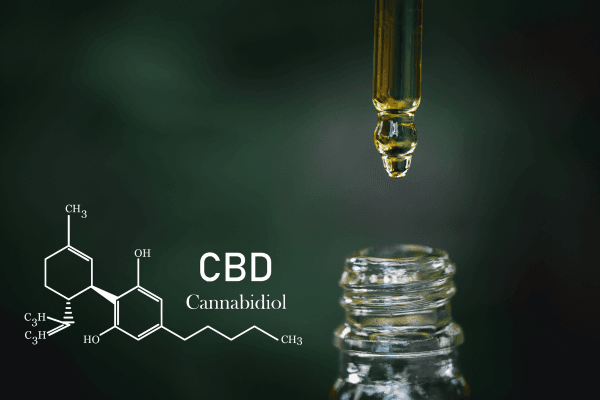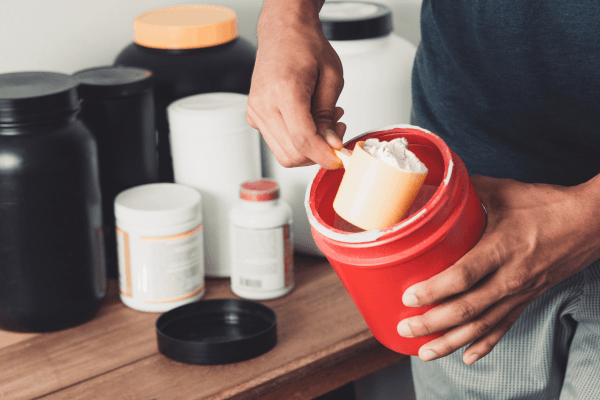What is cannabidiol (CBD) oil?
Cannabidiol is a phytocannabinoid of the Cannabis sativa plant. CBD has been gaining popularity over the past few years due to its psychoactive properties without inducing a high. The interest in CBD has grown due to its interaction with the endocannabinoid system. The endocannabinoid system is an important regulatory system in the human body with the potential to treat several illnesses. However, CBD in its pure, natural, independent form contains no psychoactive properties. The addition of Delta-9 THC (tetrahydrocannabinol) (another component extracted from cannabis sativa plant) to CBD products contributes to the psychoactive properties.
Understanding legal definitions of recreational drugs containing CBD?
Both hemp and marijuana are varieties of the same plant genus. CBD is derived from hemp which contains very low concentration of THC while THC is derived from Marijuana. Delta-9 THC induces psychoactive properties by binding to receptors on the brain and body.
Hemp – It belongs to the cannabis family. It may contain <0.3% of delta-9 THC/dry weight.
Marijuana – It belongs to the cannabis family but is not considered to be hemp. It may contain >0.3% of delta-9 THC/dry weight basis.
Disclaimer – Laws regarding cannabis and its derivatives can differ based on jurisdiction. Please consult a legal practitioner and a healthcare professional to understand the legal aspect. We do not promote the use of any product/substance mentioned in this text.
Commercial CBD products
There are different types of CBD products based on the use/purpose and the route of administration. Some of them are:
1. Oral CBD products as tinctures, food products like gummies, chocolates and beverages.
2. CBD products for inhalation (ex. Vape pens with CBD dominant hemp plants etc.)
3. Topical application such as gels, balms, lotions, cool sticks, healing sticks etc.
The pet industry, cosmetic industry and hair care industry are also turning to CBD based products.
Medical vs non-medical CBD products
The use of CBD can be categorised for medical and non-medical use.
| Medical CBD | Non-medical CBD | |
| Purpose/use | It is intended for treatment for a designated condition. | It is used for relaxation, stress relief and wellness |
| Availability | It is prescription based | It is available over the counter |
| Cost | It is expensive | It is comparatively affordable |
| Standardisation | It has strict regulations and standards to follow | It has less stringent rules and standards to follow |
| Psychoactive effect | It contains high amount of THC (psychoactive component) | It does not contain THC (psychoactive component) |
Health claims of CBD oil
| Health concerns | Applications of CBD |
| Seizure and epilepsy | A study revealed that titrating dose of CBD can help with reduce weekly seizures and epilepsy associated with several diseases. |
| Anxiety | CBD has anxiolytic properties. It may be helpful in the treatment of clinical anxiety, social anxiety disorder (SAD) etc. |
| Schizophrenia | CBD may act on both the positive and negative symptoms of Schizophrenia. It has lower side effects compared to the traditionally used drug as it does not rely on the inhibitions of dopamine D2. |
| Parkinson’s disease | CBD may improve self efficiency in individuals with Parkinson’s disease. |
| PTSD (Post traumatic Stress Disorder) | Studies reveal that CBD can be a potent treatment in individuals with PTSD. |
| COVID-19 | Cannabinoids can bind to the spike protein which causes SARS-CoV-2. |
| Sleep | CBD may act as hypnotic in few individuals promoting longer duration of sleep. |
| Relieves chronic pain | CBD may work on the opioid receptors of the central nervous system to relieve pain.A study revealed that administering CBD in opioid addicts helped relieve pain by 36.4% 4 weeks and post administration. |
| Type 2 Diabetes Mellitus | Cannabinoids may prevent oxidative stress, inflammation, cell death and fibrosis.It may inhibit diabetes induced nitrogen stress.It can decrease diabetic cardiomyopathy by reducing myocardial oxidative stress |
| Cancer patients | Cannabinoids may have an anti-tumour effect.It has been approved in palliative care due to their ability to prevent nausea, vomiting and pain relief. It may also affect the cell proliferation and signal key processes in the body. |
| Intraocular pressure | CBD may help individuals with early ocular hypertension |
CBD and substance use disorder
CBD may help individuals who have substance use disorder. A study revealed that when a commercial cannabinoid was used in abstinent heroin users, CBD could reduce drug associated physiological effects such as rapid heart rate etc. It also reduced cravings and anxiety for a longer duration. Another study on nicotine addicts, who were given CBD-containing inhalers revealed a temporary reduction in daily number of cigarettes.
Risks and harms associated with CBD products
The use of CBD products has been promoted by several marketing companies and social media influencers but it does have associated risks.
1. CBD products are associated with unproven health claims.
2. Not all CBD products are FDA regulated
3. CBD products may have unknown health effects
4. Unknown side effects of CBD products may include – Brain development issues in foetuses, increased risk of pregnant and breast feeding mothers.
5. It can lead to vomiting, nausea, sickness, loss of conciousness, hallucinations etc.
Note – Always consult a legal practitioner and a healthcare professional to understand the legal aspect and the suitability of cannabidiol products. We do not promote the use of any product/substance mentioned in this text.
Mayuri,
Clinical Dietitian, Simplyweight





